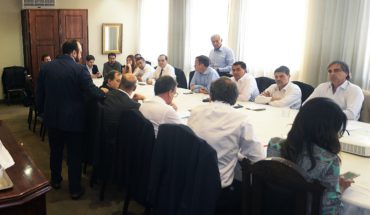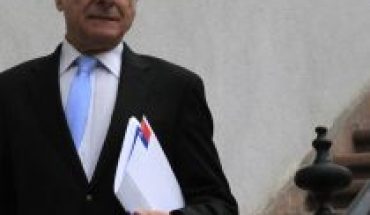MANAGUA (AP) — The head of Nicaragua’s Army on Wednesday denied that there are paramilitary forces in the country and assured that the Castrense entity has been the victim of a “brutal campaign” of smear.” In no view do we accept this concept of paramilitary forces,” General Julio César Avilés told official media at the first press conference he has offered since the social protests that erupted on April 18, 2018.
Just three days after the demonstrations began, he said, the Army called for a dialogue between Daniel Ortega’s government and the leaders of the protests, which led to a serious political crisis that remained unresolved. HELP US Click the Google News star and follow us He said there has been “a brutal campaign” against the military entity, trying to push it to act outside the Constitution and laws, and noted that the Army is the one that “has been putting the m sweat, blood and sacrifice to keep Nicaragua safe and stable.” He reported that more than 200 custom attacks against him and his family were published on social media and media.” We know who’s behind that, (but) those pressures aren’t going to change our decisions or drag us down the wrong path,” he warned. The opposition has called on the military leadership to disarm government-linked paramilitary groups and charged with police with the deaths of hundreds of people during the protests. According to the Constitution, the police and the Army are the only armed forces to operate in the country.
“They’re never ever going to pressure us. There is no headline or social media that is worthwhile, we are firm,” the military chief insisted.
He added that the concept of paramilitarism did not apply to Nicaragua but to countries such as Colombia, and referred to groups arising from economic and political interests, which organized self-defense forces or structured outside the law by military. Avilés also spoke for the first time about the fire at the Maíz Indian Reserve, in March 2018, which gave rise to the first student protests that year, and said the Army did help suffocate him by sending more than 1,500 men to the scene of the sinister , in southern Nicaragua.
“We did nothing to bring the country into the situation we have experienced since 2018, nor have we done anything to aggravate it, but there has been an attack on the institution,” the senior military head office insisted.
He also denied that the Army was involved in the crackdown on social protests.” There’s not a single gun that’s come out of our warehouses,” he said. He said the role of the military was to protect the nation’s vital goals, and that some 200 strategic sites, such as fuel, food and vaccine depots, power generation and transmission campuses, the airport, ports and communication and drinking water supply systems. He assured that decisions will never emerge from the Army that will lead the country to the loss of its security, to a situation of greater complexity, let alone a situation of war.” There are no signs here, no drugs, no drug storage, no maras,” he said, after ensuring that the military is a “wall of containment” against drug trafficking and organized crime.





